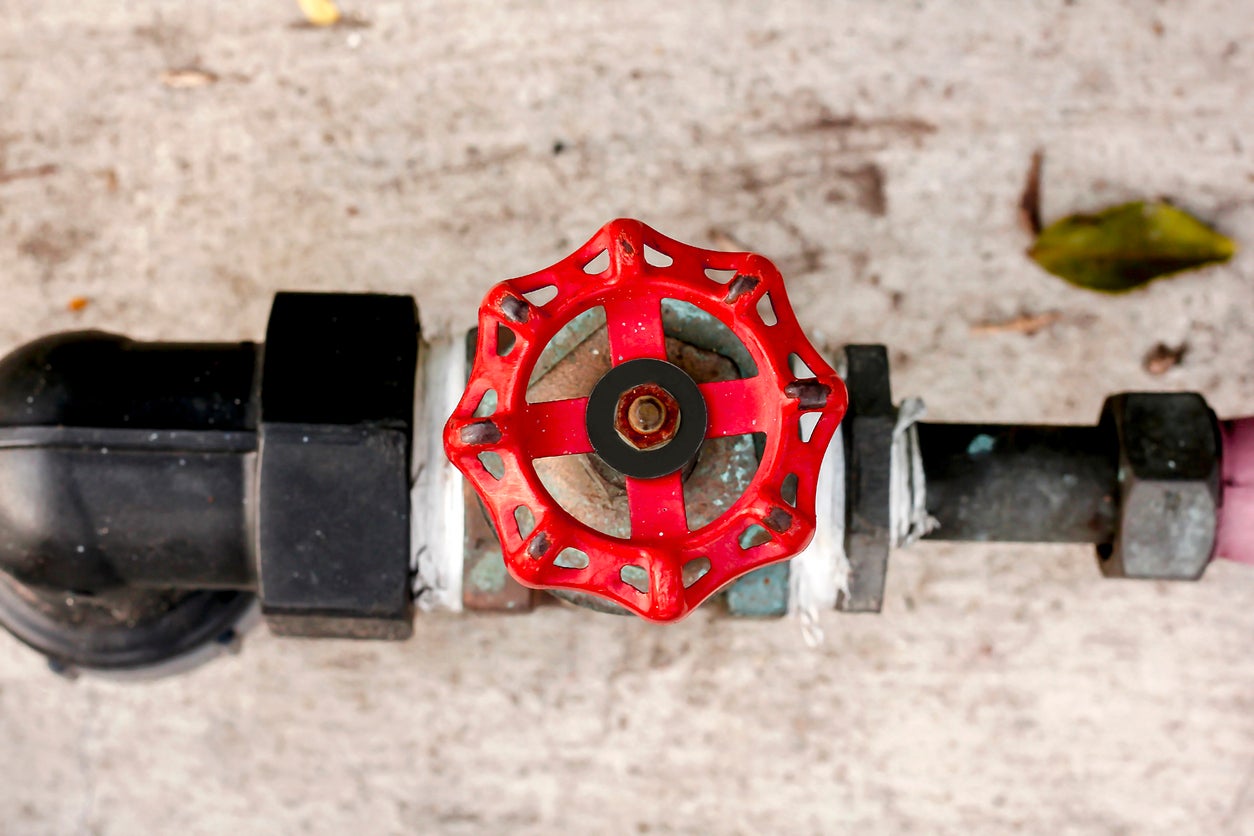Step-by-Step Tips for Dealing with Low Water Pressure in Your Home
Step-by-Step Tips for Dealing with Low Water Pressure in Your Home
Blog Article
The article author is making several good points about Low Water Pressure in the House? overall in this article in the next paragraphs.

Low tide stress in your home can be an irritating issue, influencing every little thing from showering to washing meals. If you're experiencing weak water circulation, there are numerous possible reasons and remedies to explore. In this guide, we'll discuss usual factors for low water stress and sensible actions to address the concern properly.
Intro to Low Water Stress
Low water stress takes place when the flow of water from your taps, showers, and other components is weaker than normal. This can make everyday tasks much more difficult and much less reliable. Recognizing the sources of low water pressure is important to discovering the appropriate option.
Common Root Causes Of Low Tide Stress
Faulty Pressure Regulators
Stress regulatory authorities are responsible for preserving regular water stress in your house. If they malfunction, it can result in low water pressure or irregular circulation throughout your home.
Metropolitan Water Supply Issues
In some cases, the issue lies outside your home. Municipal supply of water problems, such as main line leakages or upkeep job, can momentarily lower water stress in your location.
Pipeline Obstructions
Gradually, pipelines can come to be obstructed with natural resource, sediment, or debris, limiting the flow of water. This is a typical issue in older homes with galvanized steel pipelines.
Rust
Corrosion within pipelines can result in leakages and decreased water stress. Corrosion accumulation can constrict water circulation, especially in aging plumbing systems.
Just How to Identify Low Water Stress
Evaluating Pipelines
Inspect visible pipes for signs of leakages, deterioration, or blockages. Pay attention to any type of unusual noises, such as knocking or rattling pipelines, which can show concerns within the plumbing system.
Consulting with a Plumber
If you're incapable to identify the source of low water pressure, think about employing an expert plumber to perform a comprehensive examination. They can recognize underlying issues and recommend proper options.
Checking Faucets and Fixtures
Beginning by checking the water stress at various faucets and fixtures throughout your home. If the problem is separated to details areas, it may suggest localized troubles.
DIY Solutions to Repair Low Tide Stress
Flushing Hot Water Heater
Debris build-up in the hot water heater can limit flow and minimize performance. Purging the container occasionally aids get rid of debris and preserve optimal performance.
Checking Pressure Regulator
Guarantee that the stress regulator is working correctly. Readjusting or changing the regulatory authority can aid restore proper water stress throughout your home.
Cleaning Up Aerators and Showerheads
Natural resources can accumulate in aerators and showerheads, minimizing water circulation. Remove and clean these parts routinely to improve water stress.
Cleaning Clogs in Pipes
For minor obstructions, try utilizing a plumbing snake or chemical drain cleaner to clear blockages in pipelines. Beware when making use of chemicals and comply with safety guidelines.
When to Call a Professional Plumber
If do it yourself initiatives fail to deal with the problem or if you presume considerable plumbing issues, it's finest to look for aid from a qualified plumber. They have the competence and tools to resolve complicated concerns securely and effectively.
Preventive Measures to Keep Water Pressure
Mounting a Stress Booster
Think about mounting a stress booster pump to enhance water pressure in locations with constantly reduced flow. This can be particularly useful for multi-story homes or properties with high-demand fixtures.
Tracking Water Use
Bear in mind water use practices and stay clear of ill-using the plumbing system. Straightforward changes, such as incredible showers and washing lots, can assist preserve appropriate water pressure.
Routine Maintenance
Arrange routine maintenance for your plumbing system to stop issues such as rust, leaks, and clogs. Resolving small issues early can assist avoid even more considerable repair work later on.
Conclusion
Managing low tide stress can be frustrating, yet identifying the underlying reasons and carrying out appropriate options can restore optimal flow throughout your home. Whether it's cleansing aerators, inspecting pipelines, or consulting with a plumber, taking aggressive steps can make sure a consistent supply of water for your everyday needs.
How to Fix Low Water Pressure In Your Home
Municipal Water Supply Issues
Scheduled maintenance, high demand, and water main breaks are all potential causes for low water pressure within a city or county’s water lines. While there’s not much you can do to personally fix a problem with your city or county’s water supply system, you can play a big role in documenting the issue and alerting those who can.
How to fix it:
Ask your neighbors if they are experiencing any issues with low water pressure. If multiple homes are affected, it’s likely related to the city’s water line. Contact the local Water Authority to see if there is any maintenance taking place that might be affecting your supply. Also let them know of your specific issues. If other homeowners report the same issues, they’ll know that there could be a larger issue to look into. Faulty Fixtures
A damaged or clogged shower head, faucet or appliance is the first thing we’d suggest checking, especially if low water pressure appears to be isolated to a specific area of your home.
How to fix it:
First, turn off the main water supply to your home. Check the affected appliances for build-up or debris. In the case of a faucet, you can simply unscrew the aerator at the tip of the faucet. Showerheads should be fully detached from the water pipe. While the appliances are detached, you may want to check the water supply to determine if the fixtures were in fact the issue. To clean, soak the showerhead or aerator in vinegar and brush off any visible debris. Reattach the fixtures and check the water pressure again. If it is still low, there is likely a deeper issue at hand, which can be determined by a professional plumber. Pipe Obstructions
Mineral deposits, rust or other debris within water pipes can lead to blockages or corrosion over time.
How to fix it:
When you think of a clog, you probably think of a drain clog. While there are many DIY solutions to clearing a drain, clogs in a water pipe will almost always require the help of a professional plumber. A plumber will be able to locate the affected pipe and clean out any debris or mineral deposit buildup. In severe cases, the pipe may need to be replaced. Your plumber might also recommend a water softening system to remove the minerals from your home’s water supply that can contribute to pipe blockages over time.
Plumbing Leak
Undetected water line leaks can divert water away from your residential pipes, reducing the water pressure in your fixtures.
How to fix it:
Check your water meter by turning off all water sources and monitoring the meter for any movement, which could be a clear indicator of a potential leak. Check all visible pipes for signs of leaking, including water stains, active dripping or damp spots around the pipe. Inspect fixtures, including faucets and showerheads, for any drips. Test the pressure but recording the pressure with the main water valve shut off. Leave off for a few hours and test again. A significant drop in pressure is a clear sign of a leak. https://kiddcoplumbing.com/plumbing-blog/how-to-fix-low-water-pressure/

We had been introduced to that write-up on through a good friend on our other web address. Are you aware of someone else who is truly interested in Low Water Pressure in the House?? Why not promote it. Thanks so much for going through it.
Call Today Report this page